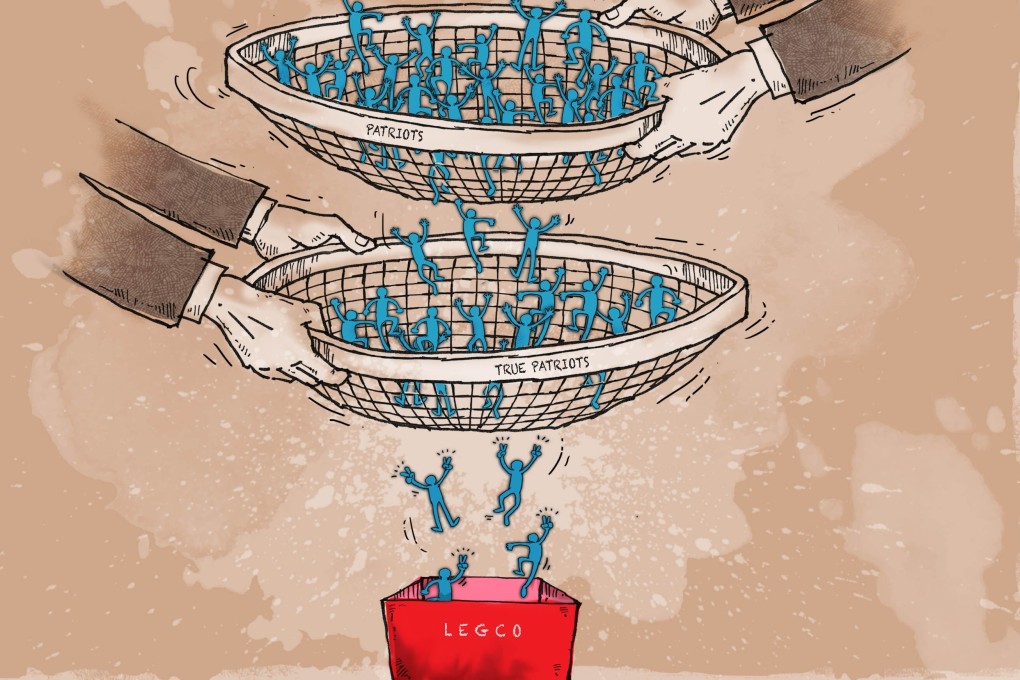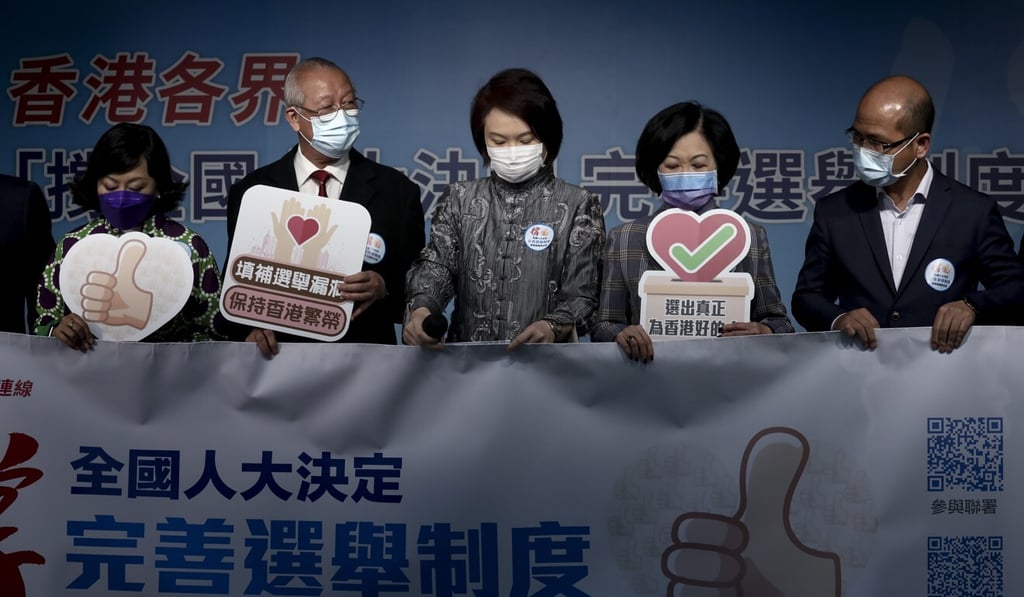Loyalty’s not enough: Hong Kong’s pro-Beijing parties will gain from elections overhaul, but can expect new pressure to perform
- Even established parties risk having influence undercut by Beijing loyalists after revamp
- Reshaping of Legco could see pro-Beijing parties slugging it out for reduced number of seats

China’s parliament, the National People’s Congress, on Thursday formally approved the biggest shake-up of Hong Kong’s electoral system since the city’s return to Chinese sovereignty in 1997. The revamp will mean big changes for both the opposition and Beijing-loyalist camps. In the first of a two-part special, the Post looks at what lies in store for the pro-establishment bloc.
Mainland scholars of Hong Kong affairs have urged the pro-establishment camp to raise its game, warning that expressing loyalty to Beijing will not be sufficient to ensure survival in the new political landscape.
Li Xiaobing, a Hong Kong specialist and law professor at Nankai University in Tianjin, did not mince words when he said that some in the pro-establishment camp had simply been lazy.
“They have been relying too heavily on the central government,” he said.
